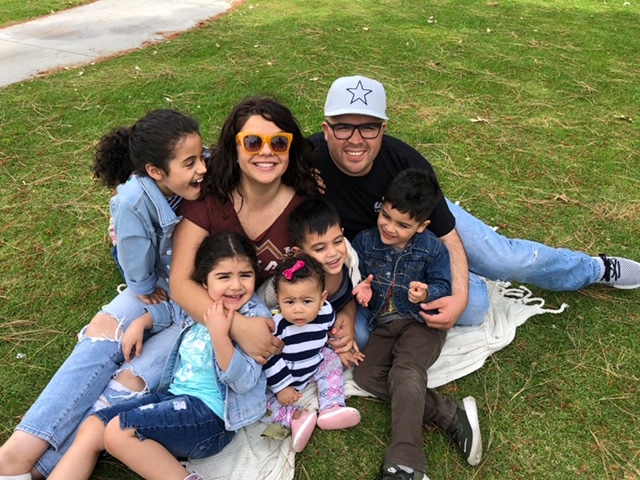I’ve never realized this, but Sesame Street educates adults as well. Sesame Street recently introduced a new character, Karli, a green fuzzy monster with two pigtails who is on Elmo’s soccer team. Karli is a young girl in foster care, and her foster parents are named Dalia and Clem. In this episode, Karli invites Elmo over her house for pizza and walks him around the dinner table to show him everyone’s special placemat. As she gets to the end of the table, she realizes her placemat is missing and becomes distraught over the idea that she does not have her own placemat. Karli then associates the missing placement as her not having a special place at the table. Karli is then comforted by her foster parents and reassured that she will always belong with their family.
I am like Dalia, and my husband is like Clem. We, too, are foster parents or as Sesame Street identified in this episode a recent: the “For–Now” parents. For-now parents are adults who hold a safe home for children in foster care. We do not take the place of biological parents, we’re just stepping in “for now” until the parents of our foster children are healthy.
We are the for-now parents to a beautiful, curly haired 10-month old baby and a brave, four year old boy. We are holding a safe space until these children can be reunited with their mother.
Before this episode aired, my husband and I have had multiple conversations as to what we would call ourselves. Technically, we’re their aunt and uncle, but legally we’re their parents. We’ve also discussed how do we reassure our toddler nephew and ease his anxiety over his mother. Do we tell him she’s
And then Sesame Street comes to the rescue.
“We want foster parents and providers to hear that what they do matters—they have the enormous job of building and rebuilding family structures and children’s sense of safety. By giving the adults in children’s lives the tools they need—with help from the Sesame Street Muppets—we can help both grownups and children feel seen and heard and give them a sense of hope for the future,” stated Dr. Jeanette Betancourt, Senior Vice President of US Social Impact at Sesame Workshop.
And this is exactly what Sesame Street did.
Sesame Street has provided many resources such as a sing-along song titled “You Belong,” new vocabulary such as a “For-Now” parent, a basket activity to support children in identifying feelings, and digital interactives. In addition, the show also provided coping and calming strategies for children and honest/age appropriate ways to address questions about foster care.
A few weeks ago, Sesame Street changed my life. I’m thankful for the emotional tools and resources that address the hard to answer questions that I’ve been avoiding. I’m proud to be a for-now parent to my nephew and niece. They get to feel part of the family even if it is just for now.
Karen Cervantes Jimenez
Latest posts by Karen Cervantes Jimenez (see all)
- Creando una Asociación de Padres y Maestros Durante Una Pandemia - October 13, 2020
- Creating Parent Teacher Partnership in a Pandemic - September 3, 2020
- Cómo Prepararse Mentalmente para el Regreso a Clases Durante una Pandemia - August 21, 2020
- How to Mentally Prepare for Back to School During a Pandemic - August 19, 2020
- Sprinkle A Little Compassion This Holiday Season - December 20, 2019

